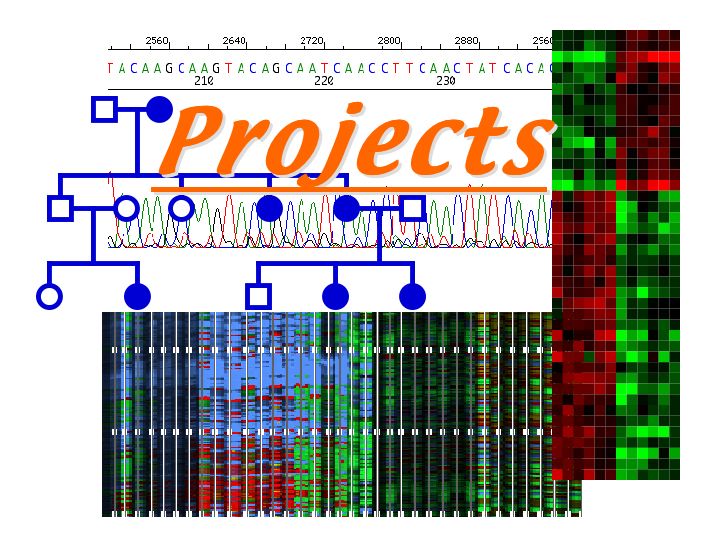Genetic studies can provide valuable information in clinical applications. My research is focused on the use of genetic knowlege to the diagnosis and treatment of ovarian cancer patients. This effort is represented in the following designs.
Use tumor-specific genetic alterations to identify tumor DNA in the blood or peritoneal fluid of women with ovarian cancer. We identify molecular alterations that occur in nuclear or mitochondrial DNA in tumor but not matched normal tissue. We use these known alterations to identify tumor DNA in plasma or peritoneal fluid. We relate these results to clinical information to determine if the identification of tumor DNA in blood or peritoneal fluid relates to disease status or has prognostic implications for these women. Ultimately, these methods may have diagnostic utility.
Develop and characterize new ovarian cancer cell lines from women with hereditary ovarian cancer. These cell lines lack BRCA1 or BRCA2 function and will aid our understanding of the cellular functions of these genes. Insights gained from these studies will allow us to improve and tailor our treatment of hereditary ovarian cancer and hopefully lead to new methods of prevention.
Explore the role of promoter methylation in the inactivation of tumor suppressor genes in ovarian cancer. We are particularly interested in the promoter methylation of DNA repair genes and how this phenomenon impacts response to chemotherapy.
Characterize ovaries and tubes removed prophylactically from women at high risk of ovarian cancer because of an inherited genetic cancer predisposition. Determine if genetic changes occur that may represent neoplastic progression prior to development of a histologically identifiable lesion. These studies may help us understand the earliest changes that occur in ovaries at high risk of cancer. A better understanding of this process may lead to novel detection and prevention strategies for ovarian cancer.
I am also a faculty member of the Department of Obsterics and Gynecology.



